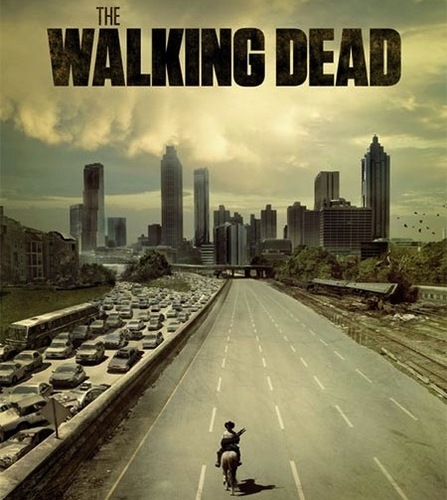For more than 10 years, each spring, I had the pleasure to teach an Honors Seminar. Students choose the topics studied. In the wake of Sept. 11, 2001, the virtue of courage was selected more than once. What characterizes a courageous life? How does recklessness differ from courage? Is fear essential for an individual to exhibit courage? Profiles from history and current events were examined. Christian martyrs, the founders of the United States, leaders of civil rights movements in the United States and around the world, explorers, soldiers, sailors, pilots and Carnegie Hero Fund awardees provided diverse examples. Vigorous discussions ensued as we struggled to understand what Maya Angelou called “the most important of all virtues.”
Over the past few years the topic chosen revolved around the ubiquitous visions of post-apocalyptic futures. The young adult novels and subsequent films Hunger Games and Divergent and the television series The Walking Dead provide interesting examples of this genre. The seminars examined the historical roots and questioned the underlying causes behind its current popularity.
Science fiction dreams of what the future may hold while exploring the most essential humanistic questions along the way. These tales can fall on a spectrum with Gene Roddenberry’s Star Trek universe – a diverse and united federation of planets meeting the challenges of a wider galaxy – at the utopian end. On the opposing end of this spectrum more nightmarish visions are found like Fritz Lang’s Metropolis, George Orwell’s 1984 and The Walking Dead to name just a few.
 Societal hopes and fears are expressed through our fiction. Metropolis, produced in the 1920s, warned of the dangers of deepening social-economic divisions. Written in 1949, 1984 eloquently envisioned a dehumanizing totalitarian, communist future. The Godzilla movies expressed a collective fear of the incredible destructiveness of nuclear weapons and the radioactive consequences all too real during the Cold War. More recently, 2001: A Space Odyssey, Terminator and Matrix describe futures where computers turn on their programmers.
Societal hopes and fears are expressed through our fiction. Metropolis, produced in the 1920s, warned of the dangers of deepening social-economic divisions. Written in 1949, 1984 eloquently envisioned a dehumanizing totalitarian, communist future. The Godzilla movies expressed a collective fear of the incredible destructiveness of nuclear weapons and the radioactive consequences all too real during the Cold War. More recently, 2001: A Space Odyssey, Terminator and Matrix describe futures where computers turn on their programmers.
So, what might the popularity of post-apocalyptic tales tell us of our contemporary fears? Could the popularity of these dystopian visions be a symptom of a culture that is increasingly fearful? Do we live in a society facing so many interconnected threats – named and unnamed – that even in our leisure we seek tales of a dark future? This possibility raises a deeper concern than any individual threat. To liberally paraphrase Franklin D. Roosevelt’s first inaugural address - a fearful society is a society susceptible to collapse.
Certainly, natural disasters, human-induced climate  change, the depletion of natural resources, the loss of biodiversity, the rise of new diseases like Zika and Ebola, the growth of radical Islamists like ISIL and Boko Haram, and our limited capacity to assist or even empathize with those millions injured, displaced or killed as a consequence provide reasons to worry about the future. The interconnectedness of our planet’s biosphere has never been more apparent. Carbon dioxide and ozone-depleting chemicals emitted on one continent affect the entire globe. Likewise, the planet’s nations have never been more connected. An economic crisis in the United States or China can crash markets around the world. With widespread air transportation, a viral outbreak in Africa or South America can spread across oceans in a matter of days – even hours.
change, the depletion of natural resources, the loss of biodiversity, the rise of new diseases like Zika and Ebola, the growth of radical Islamists like ISIL and Boko Haram, and our limited capacity to assist or even empathize with those millions injured, displaced or killed as a consequence provide reasons to worry about the future. The interconnectedness of our planet’s biosphere has never been more apparent. Carbon dioxide and ozone-depleting chemicals emitted on one continent affect the entire globe. Likewise, the planet’s nations have never been more connected. An economic crisis in the United States or China can crash markets around the world. With widespread air transportation, a viral outbreak in Africa or South America can spread across oceans in a matter of days – even hours.
In the same way, ideas spread and infect not just individuals but cultures and nations. Good ideas such as liberty and justice for all can build civilizations. On the other hand, bad ideas can lead to catastrophes and even collapse of societies. In the past, ideas only spread by word of mouth at the speed one could walk. Saint Paul and other disciples traveled the Roman Empire’s roads spreading the Gospel message – it took generations for Christianity to spread across Europe. Since the 20th century, ideas can move electronically at the speed of light and our tools allow destruction on unprecedented scales. Poisonous ideas such as Hitler’s Nazism infected a nation to carry out genocide and take the world to war.
Today we see the self-proclaimed Islamic State using social media to recruit from countries as far from the Middle East as Finland, Canada and the United States. Bad ideas turn the fearful to a sort of zombie – not only killing a person’s spirit but making them an instrument to recruit or kill more. Fear of not having a place in the world, fear that your beliefs will not be respected and unnamed fears make us susceptible to the infection of dangerously bad ideas. Threats most certainly exist; however, history teaches that the opportunists that prey on the fears of these threats are more likely to destroy us. Rash actions, driven by fear, are much more likely to be regretted in hindsight.
Over the past weeks and months, self-proclaimed Christian candidates for President of the United States have suggested carpet bombing our enemies without regard for collateral damage, bullying our neighbors for the funds to build a wall at our border and torturing foreign prisoners (even sanctioning killing families of suspected terrorists) without regard for international law. These calls for the dissolution of the common moral and ethical fibers that bind us as a nation should raise an alarm. Informed by history from Rome to Nazi Germany to the Islamic State, authoritarian rulers have used fear to assume and maintain power. They create zombie herds of followers.  Republics collapse when fear overwhelms the populace leaving it susceptible to opportunists who prey on those fears. Again from our science fiction, Padmé Amedala observed in Star Wars III, “So this is how liberty dies . . . with thunderous applause.”
Republics collapse when fear overwhelms the populace leaving it susceptible to opportunists who prey on those fears. Again from our science fiction, Padmé Amedala observed in Star Wars III, “So this is how liberty dies . . . with thunderous applause.”
Fears are essential; fears identify threats and threats mus t be engaged. Without fear, courage does not exist. However, without courage, fear can overwhelm. Fears ignite primal, prehistoric instincts, which do not necessarily serve us well in a 21st-century society. A litany recited by the hero of Frank Herbert’s classic science fiction novel Dune begins, “I must not fear, Fear is the mind-killer, Fear is the little-death that brings total obliteration.” The time has come to confront our fears with courage. Only with courage can we inoculate ourselves from the contagions of dangerous ideas and opportunists that threaten the foundational virtues of our society – liberty and justice for all. Perhaps with more courage infused into the culture we will see a return of some new more optimistic visions of our future.
t be engaged. Without fear, courage does not exist. However, without courage, fear can overwhelm. Fears ignite primal, prehistoric instincts, which do not necessarily serve us well in a 21st-century society. A litany recited by the hero of Frank Herbert’s classic science fiction novel Dune begins, “I must not fear, Fear is the mind-killer, Fear is the little-death that brings total obliteration.” The time has come to confront our fears with courage. Only with courage can we inoculate ourselves from the contagions of dangerous ideas and opportunists that threaten the foundational virtues of our society – liberty and justice for all. Perhaps with more courage infused into the culture we will see a return of some new more optimistic visions of our future.
In the meantime, “live long and prosper.”



 中国学生
中国学生 Estudiantes
Estudiantes




